Nori Mouse YKL-40/CHI3L1 ELISA Kit
$461.00 – $832.00
This ELISA kit is for quantification of YKL-40 in mouse. This is a quick ELISA assay that reduces time to 50% compared to the conventional method, and the entire assay only takes 3 hours. This assay employs the quantitative sandwich enzyme immunoassay technique and uses biotin-streptavidin chemistry to improve the performance of the assays. An antibody specific for YKL-40 has been pre-coated onto a microplate. Standards and samples are pipetted into the wells and any YKL-40 present is bound by the immobilized antibody. After washing away any unbound substances, a detection antibody specific for YKL-40 is added to the wells. Following wash to remove any unbound antibody reagent, a detection reagent is added. After intensive wash a substrate solution is added to the wells and color develops in proportion to the amount of YKL-40 bound in the initial step. The color development is stopped, and the intensity of the color is measured.
Alternative names for YKL-40: Chitinase-3-like protein 1 (CHI3L1)
This product is for Laboratory Research Use Only not for diagnostic and therapeutic purposes or any other purposes.
- Description
- How Elisa Works
- Product Citation (0)
- Reviews (0)
Description
Nori Mouse YKL-40 ELISA Kit Summary
Alternative names for YKL-40: Chitinase-3-like protein 1 (CHI3L1)
| Assay Type | Solid Phase Sandwich ELISA |
| Format | 96-well Microplate or 96-Well Strip Microplate |
| Method of Detection | Colorimetric |
| Number of Targets Detected | 1 |
| Target Antigen Accession Number | Q61362 |
| Assay Length | 3 hours |
| Quantitative/Semiquantitative | Quantitative |
| Sample Type | Plasma, Serum, Cell Culture, Urine, Cell/Tissue Lysates, Synovial Fluid, BAL, |
| Recommended Sample Dilution (Plasma/Serum) | No dilution for sample <ULOQ; sufficient dilution for samples >ULOQ |
| Sensitivity | 12 pg/mL |
| Detection Range | 62.5-4000 pg/mL |
| Specificity | Mouse YKL-40 |
| Cross-Reactivity | < 0.5% cross-reactivity observed with available related molecules, < 50% cross-species reactivity observed with species tested. |
| Interference | No significant interference observed with available related molecules |
| Storage/Stability | 4 ºC for up to 6 months |
| Usage | For Laboratory Research Use Only. Not for diagnostic or therapeutic use. |
| Additional Notes | The kit allows for use in multiple experiments. |
Standard Curve
Kit Components
1. Pre-coated 96-well Microplate
2. Biotinylated Detection Antibody
3. Streptavidin-HRP Conjugate
4. Lyophilized Standards
5. TMB One-Step Substrate
6. Stop Solution
7. 20 x PBS
8. Assay Buffer
Other Materials Required but not Provided:
1. Microplate Reader capable of measuring absorption at 450 nm
2. Log-log graph paper or computer and software for ELISA data analysis
3. Precision pipettes (1-1000 µl)
4. Multi-channel pipettes (300 µl)
5. Distilled or deionized water
Protocol Outline
1. Prepare all reagents, samples and standards as instructed in the datasheet.
2. Add 100 µl of Standard or samples to each well and incubate 1 h at RT.
3. Add 100 µl of Working Detection Antibody to each well and incubate 1 h at RT.
4. Add 100 µl of Working Streptavidin-HRP to each well and incubate 20 min at RT.
5. Add 100 µl of Substrate to each well and incubate 5-30 min at RT.
6. Add 50 µl of Stop Solution to each well and read at 450 nm immediately.
Background:
Chitinase-3-like protein 1 (CHI3L1), also known as YKL-40, is a secreted glycoprotein that is approximately 40kDa that in humans is encoded by the CHI3L1 gene.[1] The name YKL-40 is derived from the three N-terminal amino acids present on the secreted form and its molecular mass. YKL-40 is expressed and secreted by various cell-types. Its pattern of expression is associated with pathogenic processes related to inflammation, extracellular tissue remodeling, fibrosis and solid carcinomas and asthma.[2] The protein is secreted by activated macrophages, chondrocytes, neutrophils and synovial cells. The protein is thought to play a role in the process of inflammation and tissue remodeling. YKL-40 lacks chitinase activity due to mutations within the active site (DGLDLAWL).[2] YKL-40 has been linked to activation of the AKT pro-survival signaling pathway and promotes angiogenesis through VEGF-dependent and independent pathways.[3] YKL-40 is a migration factor for primary astrocytes and its expression is controlled by NFI-X3, STAT3, and AP-1.[4] YKL-40 is a Th2 promoting cytokine that is present at high levels in the tumor microenvironment and in the serum of cancer patients.[5] Elevated levels of YKL-40 correlate strongly with stage and outcome of various types of cancer, which establish YKL-40 as a biomarker of disease severity.[6] Targeting YKL-40 with neutralizing antibodies is effective as a treatment in animal models of glioblastoma multiforme. YKL-40 also enhances tumor survival in response to gamma-irradiation.[3]
References
- Rehli M, et al. (1997). Genomics. 43 (2): 221–5.
- Kazakova MH, Sarafian VS (2009). Folia Medica. 51 (1): 5–14.
- Francescone RA, et al. (2011). J. Biol. Chem. 286 (17): 15332–43.
- Singh SK, et al. (2011). J. Biol. Chem. 286 (46): 39893–903.
- Høgdall EV, et al. (2009). BMC Cancer. 9: 8.
- Johansen JS, et al. (2003). Breast Cancer Res. Treat. 80 (1): 15–21.
Be the first to review “Nori Mouse YKL-40/CHI3L1 ELISA Kit”
You must be logged in to post a review.
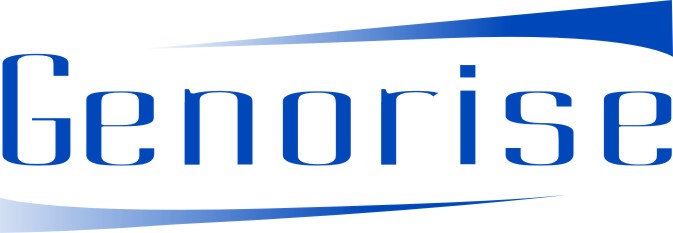






















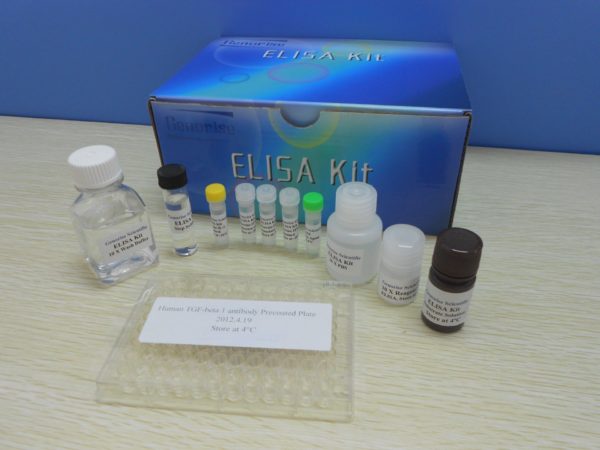
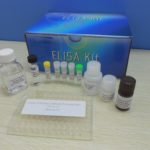
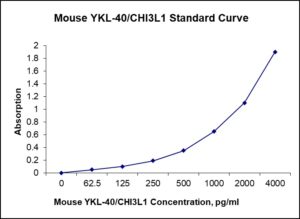
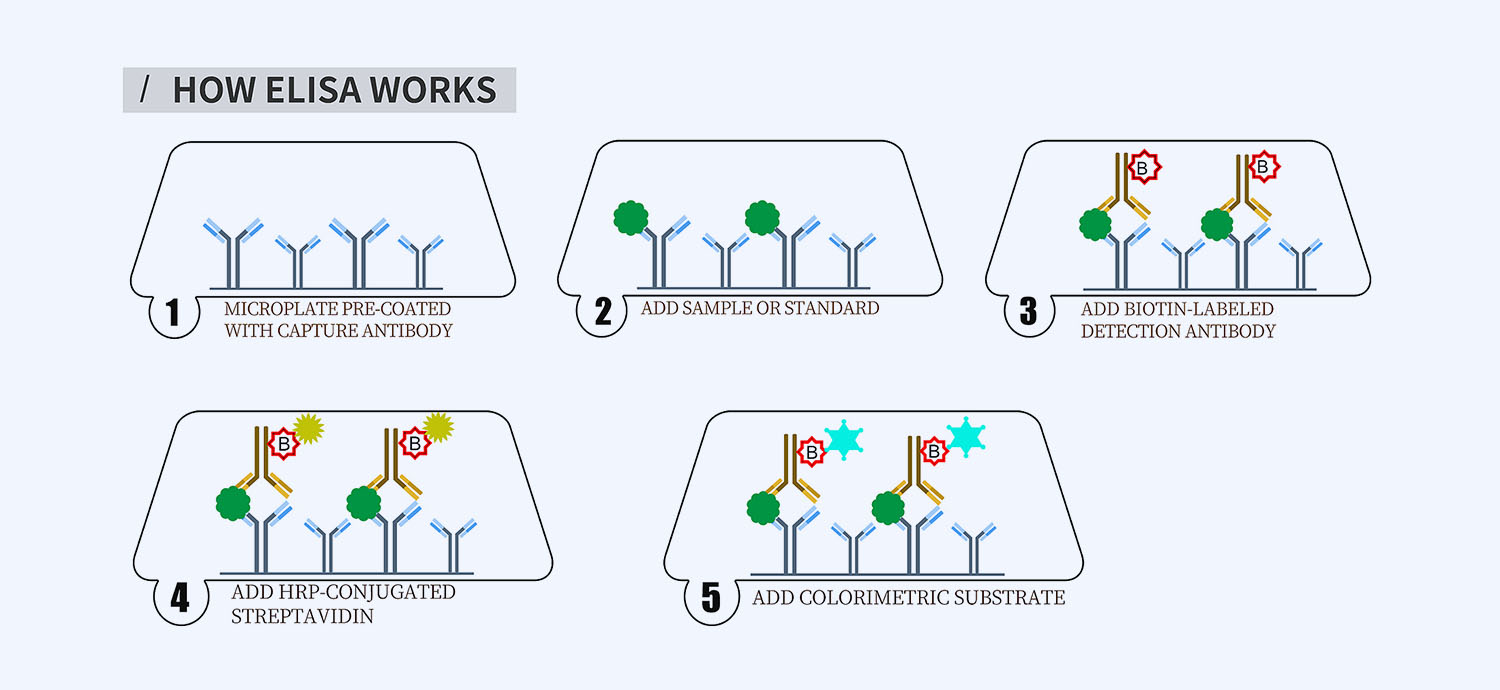
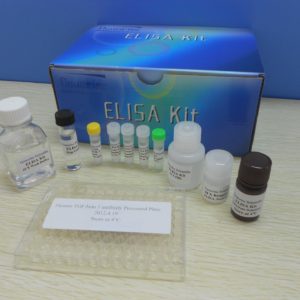
Reviews
There are no reviews yet.